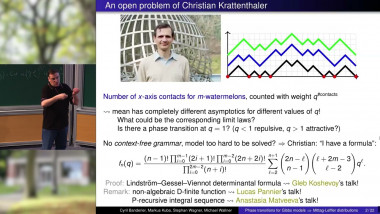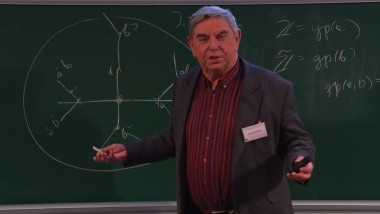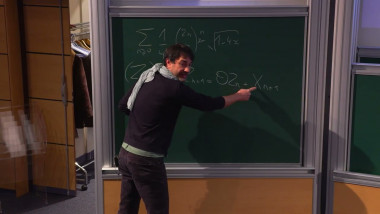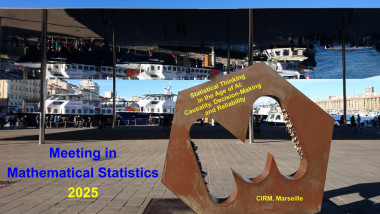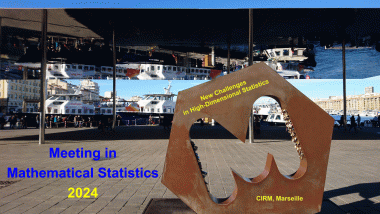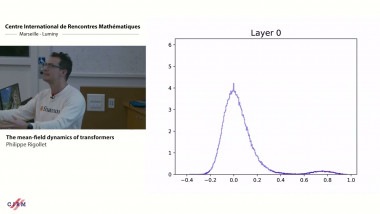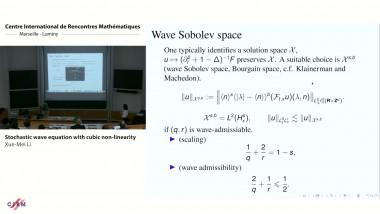Appears in collection : A Random Walk in the Land of Stochastic Analysis and Numerical Probability / Une marche aléatoire dans l'analyse stochastique et les probabilités numériques
We study the convergence of systems of interacting particles driven by Poisson random measure, having mean field interactions and position dependent jump rate. Jumps are simultaneous, that is, at each jump time, all particles of the system are affected by this jump and receive a positive random jump height. This random kick is distributed according to a one-sided alpha-stable law and scaled in $N^{-1/\infty }$, where $N$ is the size of the system. This particular scaling implies that the limit of the empirical measures of the system is random, describing the conditional distribution of one particle in the limit system. Such limits are conditional McKean-Vlasov limits. The conditioning in the limit measure reflects the dependencies between coexisting particles in the limit system such that we are dealing with a conditional propagation of chaos property. I will spend some time to explain the explicit structure of the limit system which turns out to be the solution of a non-linear SDE driven by Poisson random measure and an independent alpha-stable subordinator. In a second part of the talk I discuss strong error bounds allowing us to control the rate of convergence of the finite particle system to the limit system.
This is a joint work with Dasha Loukianova (Université d'Evry).
